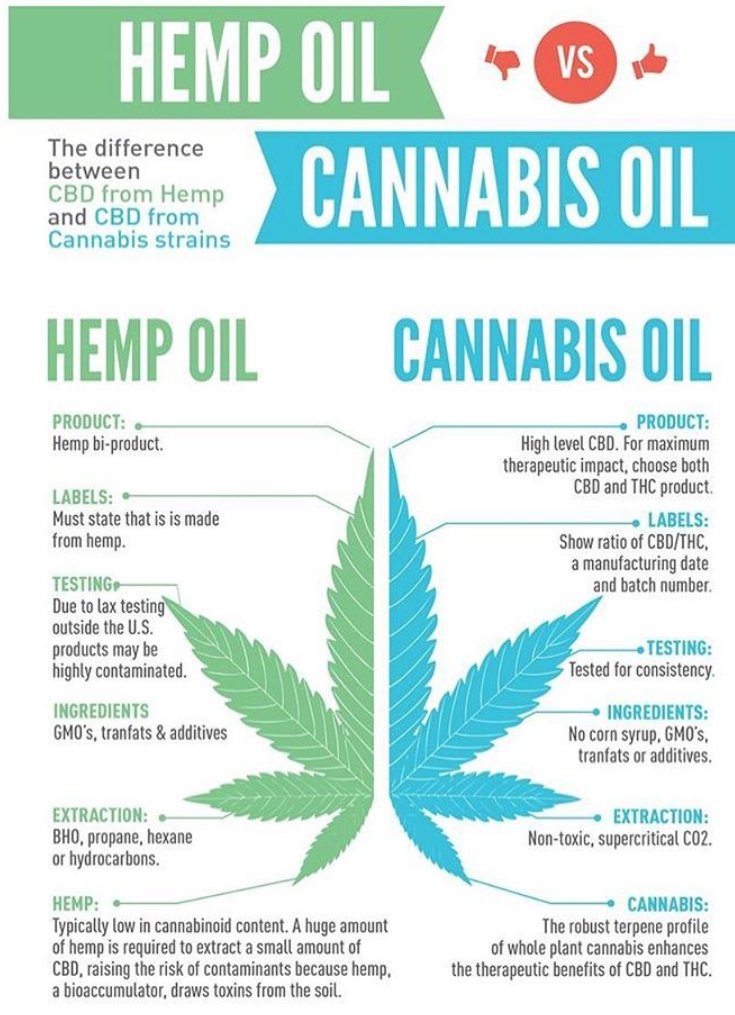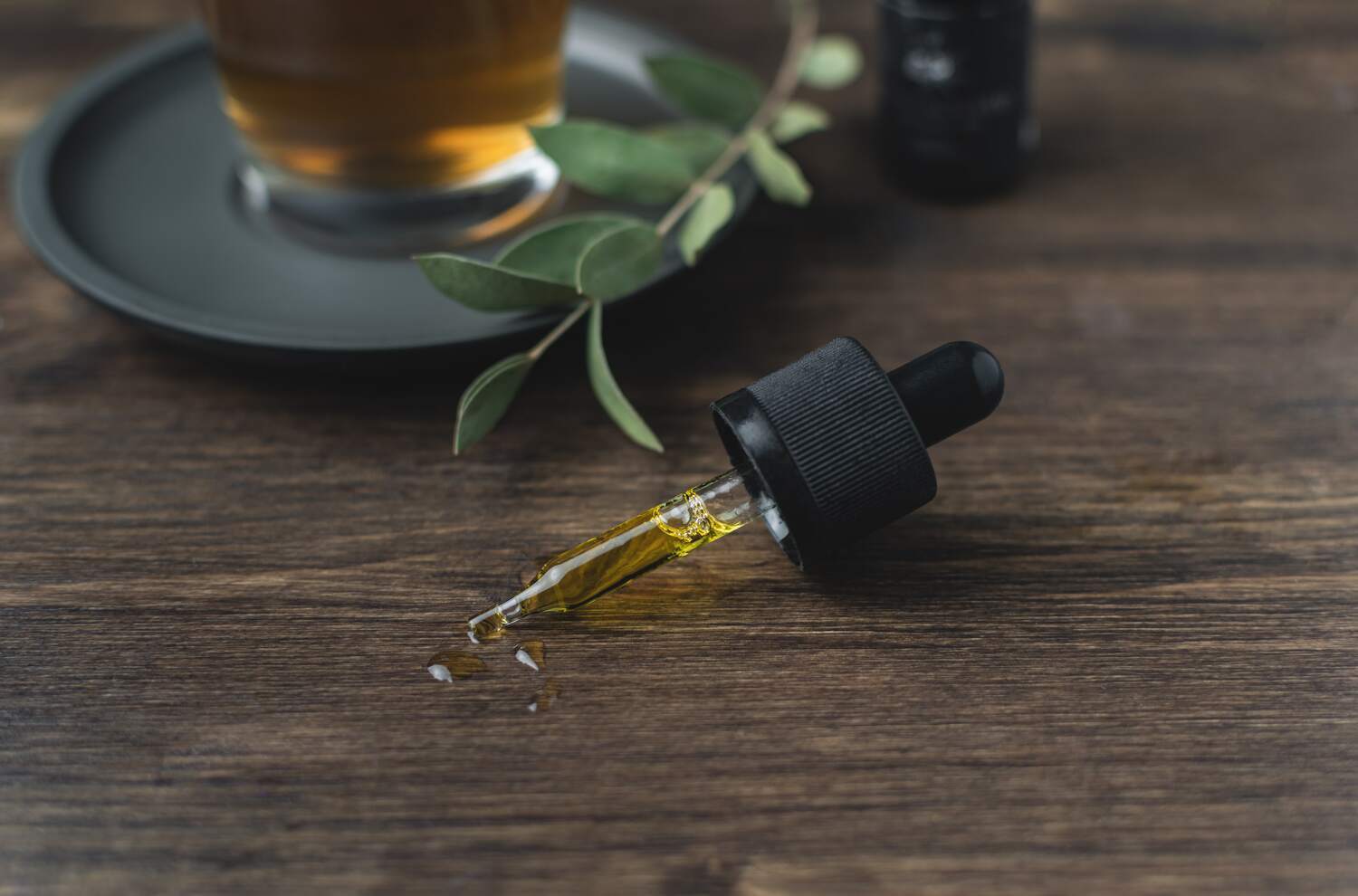If you’re familiar with cannabis, you’ve likely heard of cannabis oil and hemp oil. These oils are typically marketed to health-conscious consumers looking to relieve anxiety, pain, inflammation, seizures, skin conditions, and a variety of neurological disorders. While cannabis oil and hemp oil have many similarities, they have a few key differences that should be considered before buying.
When it comes to cannabis oil vs hemp oil, there is no clear best option for everyone. It all depends on each specific person’s need and sensitivity to the product.
What Are Cannabis And Hemp Plants?
The terms “cannabis” and “hemp” are often used interchangeably in products. Both cannabis and hemp plants technically come from the plant species, Cannabis Sativa. Hemp grows long and slender stalks and reaches up to 15 feet. Mature cannabis plants grow up to five feet tall and have thin stems with flower buds and leaves throughout.
Industrial manufacturers appreciate that hemp is a resilient plant that can be grown in a variety of environments. It also needs considerably less water than cannabis plants. Cannabis plants need tropical, moderate climates with specific humidity, heat, and light levels to grow optimally. Hemp plants grow closer together to maximize yield, while cannabis plants need space to grow.
Both plants contain cannabinoids, or chemical compounds, that affect our central and peripheral nervous system. The most common cannabinoids are tetrahydrocannabinol (THC) and cannabidiol (CBD). THC produces cerebral effects responsible for feeling “high.” CBD is not psychoactive and has multiple therapeutic applications.
Hemp has a high concentration of CBD and almost no THC, while cannabis plants are specifically grown to maximize THC cannabinoid content. The potency of cannabis plants varies by strain, growing conditions, and storage practices. When choosing between cannabis oil vs hemp oil, remember that THC is primarily found in the cannabis flower, not hemp.
What Is Hemp Oil?
Hemp oil, also referred to as hemp seed oil, is extracted by cold-pressing hemp seeds. Hemp seeds are a superfood that contains the following healthy compounds:
- Omega 3 and 6 fatty acids
- Antioxidants
- Insoluble fiber
- Protein
- Potassium
- Iron
- Calcium
Cold-pressing uses low temperatures (under 40 degrees Celsius) to preserve as much of the beneficial compounds in hemp. Depending on the process, the end result will usually come in various shades of green. These hemp oils can have a tremendous effect on certain skin conditions including psoriasis and eczema.

Growers can also use extraction techniques on mature and healthy hemp plants. Stems and leaves of the hemp plant are mixed with solvents to remove the beneficial CBD content. Less than 3 percent of the product will contain THC because hemp lacks flowers that contain the majority of THC. For this reason, you won’t test positive for marijuana when you use hemp-based CBD extracts.
What Are The Drawbacks Of Using Hemp Oil?
Hemp oil has been used extensively to treat a variety of medical conditions, but not everyone can benefit from hemp oil. For one, hemp seed oil lacks therapeutic terpenes and other cannabinoids that can interact positively with CBD (for some conditions). Additionally, hemp seeds do not have as high concentrations of CBD as the cannabis plant or a mature hemp plant does.
Furthermore, these oils are not usually tested for CBD content. Hemp CBD oil is also not recommended for use on patients that take blood thinners since CBD has anticoagulant properties that can reduce clotting. When deciding between CBD vs hemp oil, consider these factors.
What Is Cannabis Oil?
Cannabis oil refers to oil that is made using whole-plant extracts. Cannabis extraction uses solvents like Co2, butane, and ethanol to strip away cannabinoids and terpenes to reap up to 80 percent THC content. Cannabis oil can be used in tinctures, edibles, juices, concentrates, capsules, topicals, vapes, and more. The THC content depends on the extraction method and the quality of the plant.
Cannabis oil can be rich in CBD and also include THC and other terpenes. Varying ratios of CBD with THC can produce different effects. Generally, the higher the CBD content compared to THC, the more clear-headed and focused you’ll feel. Equal amounts of THC can provide anti-anxiety, anti-nausea, anti-inflammation, and anti-pain effects.
Research suggests that using the whole plant’s cannabinoids produces an “entourage effect” that amplifies the beneficial effects of THC and CBD. For example, cannabis oil with THC and CBD can help reduce insomnia, anxiety, stress, glaucoma, asthma, and neurological disorders. More importantly, cannabis oil has been known to inhibit cancer cells from spreading by cutting off their nutrient supply and programming them to self-destruct. For this reason, many people choose cannabis oil when weighing the options in cannabis oil vs hemp oil.
What Are The Drawbacks Of Using Cannabis Oil?
Since cannabis oil contains a concentrated form of cannabinoids, first-timers can be overwhelmed. Cannabis flower contains at most 30 percent THC, while concentrates can contain between 50 to 80 percent THC. Consuming too much THC can make a person paranoid, anxious, and have a dry mouth and dry eyes. These mild symptoms can dissipate within a few hours, however. Additionally, cannabis oils are not legal in all states.
The traditional way to consume marijuana has been to smoke it, but new consumption methods are growing in popularity, in particular, cannabis-derived oils. It’s important to check the label when choosing between CBD vs hemp oil to reap the desired effects. These oils can be beneficial as an alternative or complementary treatment option for medical conditions that are treatment-resistant.

